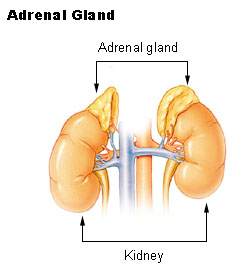
Adrenal Masses/Tumors Require a Thoughtful and Nuanced Approach
-
The adrenal glands are located in the area of the body known as the retroperitoneum, just above the kidneys. These small paired organs serve a critical function in keeping the body’s physiological balance.
Approximately 5 percent of individuals harbor tumors in their adrenal glands. When these tumors are discovered on radiology scans performed for other reasons, they are termed adrenal incidentalomas. Although the vast majority of such tumors are benign, the possibility of a cancerous lesion always must be eliminated. Thus, these lesions must be evaluated using appropriate endocrinologic and radiologic approaches.
Furthermore, some benign (non-cancerous) adrenal tumors can be extremely harmful. Approximately 10 percent of adrenal masses secrete an excess of hormones that deleteriously affect the body. For example, hormonal hypersecretion can lead to such conditions as Cushing Syndrome and Conn Syndrome. Other adrenal lesions that secrete fight and flight hormones such as adrenaline are known as pheochromocytoma.
Evaluating Adrenal Lesions
A thorough and rigorous evaluation must be performed for every patient with an adrenal lesion. Each patient should receive a metabolic work-up where hormone levels in the blood and/or urine are tested. Appropriate radiographic evaluation is also paramount. Many of these clinical strategies require a nuanced understanding of the pathophysiology of adrenal disease.
Treatment Options

For patients who undergo adrenalectomy, minimally-invasive surgical approaches, which include laparoscopic and robotic techniques (trans and retroperitoneoscopic), are the usual approach. However, it is important to make sure that one’s surgeon is also comfortable with traditional open surgery, if circumstances require it.
In order to avoid unnecessary surgery, successful management of patients with adrenal mass requires not only advanced surgical skills, but also a fluent knowledge of adrenal physiology, adrenal neoplasm biology and adrenal imaging.
At Fox Chase Cancer Center, our experts understand the nuances in management of patients with adrenal masses. In fact, our surgical specialists have co-authored the definitive chapter on adrenal disorders in the latest edition of the universally established “bible of urology,” the Campbell-Walsh Urology textbook. Furthermore, world-class endocrinologic expertise for patients with benign and malignant adrenal disorders alike is available at Fox Chase.
Summary:
If you are found to have an adrenal tumor/adrenal mass:
- Obtain a thoughtful, expert, and complete evaluation.
- Seek clinicians who minimize unnecessary intervention.
- If surgery is necessary, seek experts who utilize laparoscopic or robotic techniques, but who are also comfortable with open surgical approaches.
